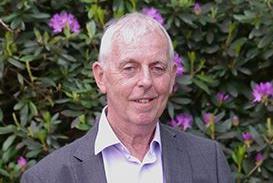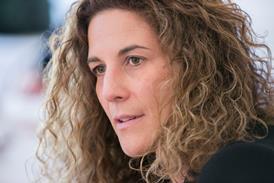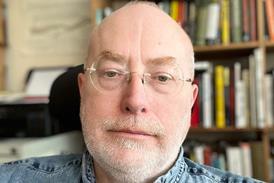The rapid increase in registered nurses has come to an end with numbers falling for the first time this year, plus the rest of the day’s news and comment

4.00pm Responding to today’s announcement from the Royal College of Midwives that its members have voted in favour of strike action, NHS Employers “regrets the result but welcomes RCM cooperation”.
Gill Bellord, director of employment relations and reward at the NHS Employers organisation, said: “It is regrettable that members of the Royal College of Midwives have agreed to take industrial action along with some of the other NHS trades unions.
“Employers will be concerned that this industrial action could worry pregnant women. However we welcome indications from the RCM that its members will continue to provide cover on maternity wards and work with local employers now to ensure that services can be maintained safely on the day of the proposed action.”
3.35pm The Department of Health has responded to the news that midwives have voted to strike over pay.
“We are disappointed that RCM is planning industrial action and has rejected our proposals to give NHS staff at least 1% additional pay this year and at least a further 1% next year.
“NHS staff are our greatest asset, and we’ve increased the NHS budget to pay for thousands more clinical staff since 2010, including more than 1,700 more midwives since May 2010. We want to protect these increases and cannot afford a pay rise on top of increments - which disproportionately reward the highest earners - without risking frontline jobs.”
“We remain keen to meet with the unions to discuss how we can work together to make the NHS pay system fairer.”
3.30pm Midwives and maternity support worker members of the Royal College of Midwives have voted to take strike action in a dispute over pay in England.
This is the first time in its 133 year history that Royal College of Midwives members will have taken strike action. In the ballot midwives and MSWs also voted yes to action short of a strike. Industrial action will start on the morning of 13 October with a four-hour stoppage.
In the vote 82.2 per cent voted for strike action, and 94.6 per cent voted for action short of a strike. The turnout was 49.4 per cent.
The yes vote follows the rejection by employers of the Independent NHS Pay Review Body (PRB) recommendation of a1 per cent pay rise for NHS staff.
Cathy Warwick, chief executive of the Royal College of Midwives, said: “This is a resounding yes from our members. It could not send a clearer signal about the level of discontent on this issue to those denying them a very modest 1 per cent pay increase.
“Our members have suffered three years of pay restraint and face the prospect that their pay in 2016 will only be 1 per cent higher than it was in 2010. The recommendations from all public sector pay review bodies have been followed except those for health workers. This is not acceptable. There is still time to come back to the negotiating table and to take a more reasonable position on the PRB recommendation.
“The RCM will be meeting with employers to discuss our action and to ensure that mothers and babies are not put at any risk. I want to reassure women expecting a baby that midwives will continue to look after them and that they will be safe.”
Harry Cayton, chief executive of the Professional Standards Authority said that plans to make the body less reliant on government funding are being slowed by the DH.
Speaking ahead of a consultation on the proposals due out this week, Mr Cayton added that “ludicrous” demands from the Treasury have also slowed the body’s attempts to be more independent from government.
2.45pm NHS Confederation chief executive Rob Webster has been appointed as a visiting professor to the Faculty of Health and Social Sciences at Leeds Beckett University.
Commenting on the appointment at Leeds Beckett University – previously Leeds Metropolitan University – Rob said: “I have worked closely with the Faculty of Health and Social Sciences over a number of years. I am looking forward to working with a progressive and innovative university as it enters its next phase of development as Leeds Beckett University. Leeds is well placed to ensure that transformative change in health and social care is informed by high quality education and research and Leeds Beckett has a significant role to play. I am delighted to be joining the University at such a pivotal time for the city and for the NHS.”
Professor Ieuan Ellis, Dean and Pro Vice Chancellor at Leeds Beckett, added: “I am absolutely delighted that Rob is joining Leeds Beckett University in this visiting professorial role. His appointment enables our students, staff and stakeholders to benefit from his insightful thought leadership and extensive experience and skill in leading and managing innovative and transformative change in and across health and social care. Rob is a passionate advocate of a value-based and person-centred approach to improving health and social care and embodies these values in his leadership style. He is at the forefront in leading and strategically influencing government for high quality, financially sustainable reforms to deliver effective integrated health and social care via the ‘2015 Challenge’.”
2.20pm Steve Ford has just tweeted: “Leadership of NHS needs to be ‘more representative of communities they serve’, says NHS England chief exec Simon Stevens #qni2014”
2.00pm The Times has an obituary to Dannie Abse, a prolific poet who was also a full-time chest specialist at the Central Medical Establishment in London.
Despite his long working hours Mr Abse wrote a poem a week and described them as “spiritual X-rays”.
1.56pm Steve Ford:”NHS England chief exec Simon Stevens says he’s not keen on term ‘out of hospital care’, as suggests a Berlin Wall between sectors”
1.55pm Simon Stevens is speaking at the Queen’s Nursing Institute conference.
Steve Ford, news editor of HSJ’s sister title Nursing Times, is tweeting. Follow @stevejford for updates.
“NHS England chief exec Simon Stevens tells #qni2014 that he’s a ‘big supporter’ of community hospitals and thinks they could do ‘a lot more’”.
1.40pm Some more interesting reader comments following our story about hospitals being offered a bonus payment for increased operations:
“I think we can all be confident that this is not just pre-election window dressing.”
“How will this be funded from the £250m? was some left over? Managing how its paid will create hours of disputes to fill management time. Can’t wait.”
“Given some of the money was allocated to non activity schemes such as validation, training etc. this change in pricing will not be possible in a lot of trusts.”
12.45pm Our story on Monitor struggling to get the competition message across has attracted some interesting reader comments:
“Extraordinary. Getting positive messages out about your work is your responsibility, Monitor. Negative commentary may not be your fault, but it is your problem.”
“There are quite a lot of us out here who very much want competition as an incentive to improve, but we need to believe that the rules are fair. What makes clinicians very cross indeed is when Monitor come up with lazy half-baked solutions like block contracts for all acute care, in which they are ducking their responsibility and pushing all the difficult decisions down to CCGs. This gives Monitor bad PR because it is a flawed idea. You can put lipstick on it, but it’s still a pig. What DB is saying is that Monitor needs better PR. It doesn’t, Monitor needs to pull its finger out and start listening to front-line clinicians, not fawning management consultants, economists and DH apparatchiks. Do that and we will sell your changes for you.”
12.16pm The Home Office and Black Mental Health UK will hold a policing and mental health summit on 23 October.
The summit will look at current police practices in the treatment of vulnerable people, develop new ideas around identifying people with mental health issues and the use of physical restraint, and agree further actions required by the government to improve practice working with vulnerable people.
Delegates will be able to put questions to a panel of experts, and in addition, participate in workshop sessions focussed on the key themes related to the end-to-end journey of vulnerable people in contact with the police.
BMH UK has concerns over data which shows that people from the UK’s African Caribbean communities are 50 per cent more likely to be referred to psychiatric services via the police.
Matilda MacAttram director of Black Mental Health UK said: ‘The issue of mental health when it come to the treatment of people from the UK’s African Caribbean communities is now widely recognised as one of the most pressing issue affecting this community to date. However our communities have never had the opportunity to discuss the issue of police involvement in the way vulnerable people from our communities are treated when in need of mental health care at a national level.
“The levels of coercion by the police has had tragic results in a number of cases and shattered community confidence in the police, this needs to change. Vulnerable people in need of mental health care do not want contact with the police – that is the last thing they want to see. What they should be getting is compassionate and human mental health care at the point of need. This will be among the issues discussed at this summit.”
11.45am HSJ senior reporter Dave West is at the Conservative Party Conference where is live tweeting from a talk Jeremy Hunt is giving. Follow @davewwest for updates.
10.50am The Care Quality Commission is ‘urgently working’ with NHS England and Monitor to make improvements at Medway Maritime Hospital’s accident and emergency department after an unannounced inspection found it ‘remained in a state of crisis with poor clinical leadership’.
A spokesman for the CQC would not reveal details of the further action being taken for “legal reasons”.
During the inspection at the end of July, the team saw one patient, who arrived at A&E with a “potentially life threatening infection”, that waited over four hours for their first dose of antibiotics. Also, children were not given an initial assessment, which is against national guidelines. This included one child who had a head injury and had been waiting an hour without being assessed.
10.25am A medical academic has claimed that NHS health checks are unfit for purpose and should be “scuttled”, The Times reports.
David Mant, emeritus professor of general practice at Oxford University, made his comments writing for the British Medical Journal.
10.20am The Guardian reports that the Welsh government has announced today the launch of a flying doctor service. Helicopters will carry NHS doctors to remote areas of the country, which aims to contribute at least 40 per cent improvement in survival rates from major trauma.
Data from the Health and Social Care Information Centre shows the number of full-time equivalent qualified nurses, midwives and health visitors reached its highest recorded level of 314,802 in March this year – 4,000 more than in May 2010.
But in April it fell for the first time this year by 660 nurses to 314,142.
9.50amThe Guardian reports that a new breast cancer drug has shown unprecedented benefits in extending the lives of women with an aggressive form of the disease. However, its high price tag is likely to once again raise issues about what the NHS can afford.
Data from the drug company Roche suggests that Perjeta could, in combination with other drugs, increase the survival of women with advanced breast cancer by 15 months.
Portsmouth, Fareham and Gosport, and South Eastern Hampshire CCGs have agreed to the review following discussions with NHS England Wessex area team, according to a paper presented to Portsmouth CCG’s governing board.
The review will examine the way commissioners work with NHS England and the NHS Trust Development Authority, and identify whether there is “sufficient capacity” to fund any agreed governance arrangements.
9.35am More than one million women who could beenfit from a drug that would halve their chance of developing breast cancer are being denied it because of NHS red tape, researchers have warned.
The Telegraph reports that experts have warned that 4,000 cases of cancer oculd be prevented each year if those at risk of the disease were prescribed drugs costing 7p a day.
Anastrozole was originally licensed in the UK as a treatment for advanced breast cancer. Medical watchdogs say they can only allow its use for prevention if manufacturers go through new application processes. But drug companies would make no profit from doing so, as the medication is now out of patent.
9.30am The Telegraph reports that young women with cervical cancer are delaying contacting their doctors because of fears that they will not be seen by a female GP, experts claimed.
They may also believe that symptoms such as abdominal pain, abnormal bleeding or discharge are not serious enough to merit a visit to the doctor, said the researchers from Queen Mary University in London.
7.00am Good morning and welcome to HSJ Live.
We start the day with the news that Monitor is struggling to combat influential commentators’ claims that competition rules hamper essential service changes in the NHS, its chief executive has admitted.




















No comments yet